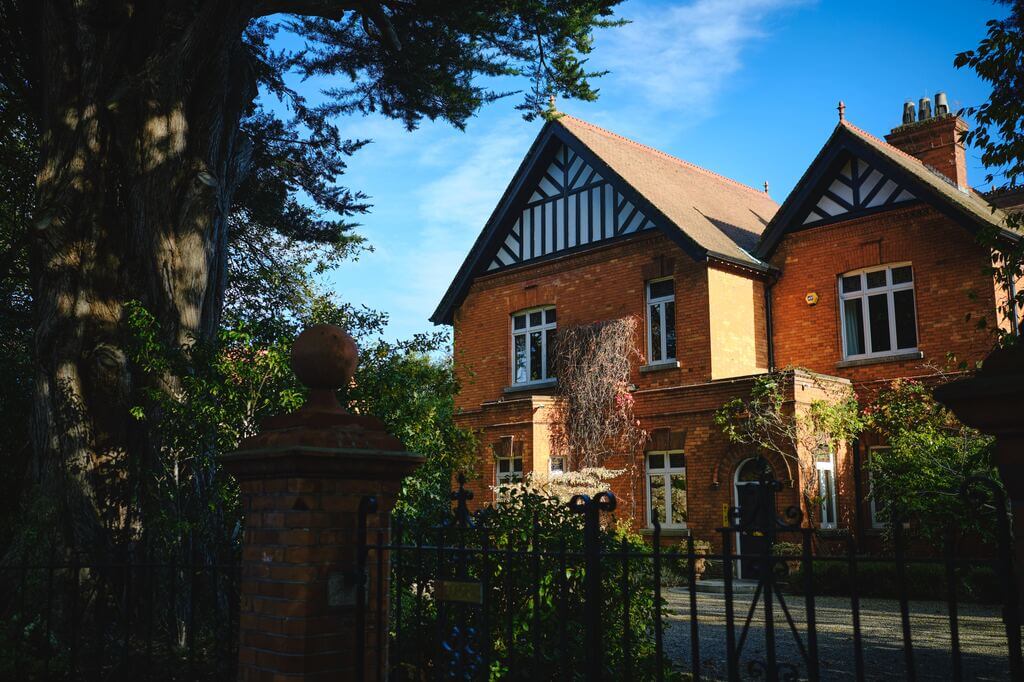How to start an Airbnb business in Ireland in 11 steps
Starting an Airbnb business in Ireland involves a series of steps to ensure you comply with legal requirements and create a welcoming space for guests. Here’s a step-by-step guide:
- Create an account on Airbnb in Ireland: Visit the Airbnb website and sign up as a new host. This will involve providing personal details and setting up your host profile.
- Register your property with the local authority: Before listing your property, understand the local laws and regulations. If your property is in a Rent Pressure Zone (RPZ), you must register your property with the local authority.
- List your property: Enter detailed information about your property, including location, amenities, photos, and a description to attract guests.
- Set your house rules: Establish clear house rules for guests, considering factors like pets, smoking, and noise levels.
- Determine pricing and availability: Set a competitive price for your listing and update your calendar to reflect availability.
- Prepare your property: Ensure your property is clean, safe, and equipped with the necessary amenities to provide a comfortable stay for guests.
- Plan for guest interaction: Decide how you’ll interact with guests, whether in person, through a property manager, or remotely.
- Understand tax obligations: Familiarize yourself with the tax implications of earning rental income through Airbnb in Ireland.
- Optimize your listing: Use high-quality photos and a compelling description to make your listing stand out.
- Stay updated on Airbnb policies: Regularly check for updates on the policies of Airbnb in Ireland and the local regulations to ensure ongoing compliance.
- Welcome your first guests: Once everything is set up, you’re ready to start hosting and enjoying the benefits of your Airbnb business in Ireland.
How to register for Airbnb in Ireland?
To register your property on Airbnb in Ireland, create an account on the Airbnb website. This process involves providing details about your property, setting up your hosting profile, and deciding on your pricing and availability. Once your listing is live, you’re ready to welcome guests.
Is Airbnb legal in Ireland?
Yes, Airbnb is legal in Ireland. However, adhering to specific regulations and guidelines is crucial, especially if your property is in a Rent Pressure Zone (RPZ). You find an overview of the Airbnb rules in Ireland below.
Overview of the Airbnb rules in Ireland
Running an Airbnb business in Ireland requires understanding the national and regional rules. These regulations ensure hosts operate within the legal framework, providing guests with a safe and compliant service.
National rules for Airbnb in Ireland
- Registration and planning permission:
- In Ireland, hosts must register their property with the local authority, especially in a Rent Pressure Zone (RPZ).
- For properties in RPZs, if you plan to rent out your entire home for more than 90 days per year, you must apply for a change of use planning permission.
- Renting out a room in your home does not typically require planning permission, but you must still register with your local authority.
- Safety and insurance requirements:
- Hosts must ensure their property meets all safety standards, including fire safety and building regulations.
- Adequate insurance coverage is necessary to cover any potential damages or accidents.
- Consumer protection compliance:
- As per EU consumer protection laws, hosts must provide clear and accurate information about their listings.
Regional rules for Airbnb in Ireland
The rules can vary significantly depending on the location of your Airbnb in Ireland. Here are specifics for some key regions:
- Dublin:
- In Dublin, which is an RPZ, strict regulations apply to short-term lettings. Hosts must adhere to the 90-day rule for entire property rentals and seek planning permission for longer periods.
- Cork:
- Cork City also falls under RPZ regulations. Hosts in Cork must comply with the registration and planning permission requirements similar to Dublin.
- Galway:
- Galway, being part of the RPZs, follows similar rules to Dublin and Cork regarding short-term lettings.
- Limerick:
- In Limerick, while the same national rules apply, the enforcement and interpretation might vary slightly, particularly in non-RPZ areas.
- Waterford:
- Waterford, not entirely covered by RPZ rules, may have more flexibility in short-term lettings, but hosts should still comply with national regulations and check for any local stipulations.
- Rural areas:
- In rural Ireland, outside of RPZs, the rules can be less stringent. However, hosts must still comply with national safety, insurance, and consumer protection standards.
- Specific tourist areas:
- In tourist-heavy areas like Killarney or the Wild Atlantic Way, additional local regulations may apply, particularly concerning the preservation of community and local housing needs.
Airbnb hosts in Ireland must stay informed about national and regional regulations, as non-compliance can lead to significant penalties.
Is Airbnb income taxable in Ireland?
In Ireland, income generated through Airbnb hosting is subject to taxation under several categories. Hosts must be aware of these tax obligations to ensure compliance with Irish tax laws.
- Income Tax: Income earned from renting out your property on Airbnb in Ireland is considered taxable income under the Irish tax system. The rate at which you are taxed depends on your total income level. As of my last update, the standard income tax rates in Ireland are 20% for the first €35,300 ($38,583) of taxable income for single individuals (€44,300 ($48,420) for married couples or civil partners) and 40% on the remaining balance.
- Value-Added Tax (VAT): Generally, short-term property rentals are exempt from VAT. However, if you provide additional services beyond the rental (such as cleaning services not included in the rental price, meals, or tours), these may be subject to VAT at the standard rate of 23%.
- Local Property Tax (LPT): This is an annual self-assessed tax charged on the market value of residential properties in Ireland. The local council sets the rate, which varies based on the property’s valuation.
- Rent-a-Room Relief: If you are renting out a room in your primary residence, you may be eligible for the Rent-a-Room Relief scheme. You can earn up to €14,000 ($15,302) per year tax-free under this scheme.
The best places to start an Airbnb business in Ireland
Ireland offers numerous attractive locations for Airbnb hosting. Some of the best places include:
- Cork: Known for its cultural heritage and vibrant city life.
- Doolin: Famous for its traditional Irish music and proximity to the Cliffs of Moher.
- Belfast: Offers rich history and a dynamic urban experience.
- Westport: Ideal for those seeking a blend of adventure and tranquility.
- Dublin: The capital city, a hub for tourists and business travelers.
- Kilkenny: Renowned for its medieval architecture and vibrant arts scene.
- Kinsale: A picturesque coastal town known for its culinary delights.
- Limerick: A city with a rich history and a strong sense of community.
- Sligo: Offers stunning landscapes and a rich literary heritage.
- Galway: Known for its lively street life and numerous festivals.
- Killarney: A gateway to the scenic Ring of Kerry.
- Dingle: A charming town with a unique cultural experience.
Frequently Asked Questions (FAQs)
What are the rules for Airbnb in Ireland?
In Ireland, Airbnb hosts must comply with national and regional regulations. This includes registering with local authorities, especially in Rent Pressure Zones (RPZs), adhering to safety and insurance requirements, and following consumer protection laws. In RPZs, renting out an entire home for more than 90 days a year requires a change of use planning permission.
How do I become an Airbnb host in Ireland?
To become an Airbnb host in Ireland, create an account on Airbnb, list your property with detailed information, set house rules, determine pricing and availability, prepare your property for guests, understand tax obligations, and ensure compliance with local regulations.
Is Airbnb taxable in Ireland?
Yes, income earned from Airbnb is taxable in Ireland. It’s subject to income tax and, in some cases, VAT. Hosts must declare this income to the Irish Revenue and may be subject to rental tax, income tax, or VAT, depending on their circumstances.
Do I need a license for Airbnb in Ireland?
While a specific “license” for Airbnb in Ireland is not required, hosts in Rent Pressure Zones must register their property with the local authority and may require a change of use planning permission for renting out their entire home for more than 90 days per year.
What is the 90-day Airbnb rule in Ireland?
In Ireland’s Rent Pressure Zones, the 90-day rule states that if you rent out your entire home on Airbnb for more than 90 days in a year, you must apply for a change of use planning permission from your local authority.
Is Airbnb profitable in Ireland?
Airbnb can be profitable in Ireland, especially in tourist-heavy areas and major cities like Dublin, Cork, and Galway. Profitability depends on factors like location, property type, amenities offered, and effective management.
Is Airbnb a good investment in Ireland?
Airbnb can be a good investment in Ireland, considering the country’s robust tourism industry and demand for short-term rentals. However, potential investors should carefully consider location, compliance with local regulations, and market trends to ensure a good return on investment.






